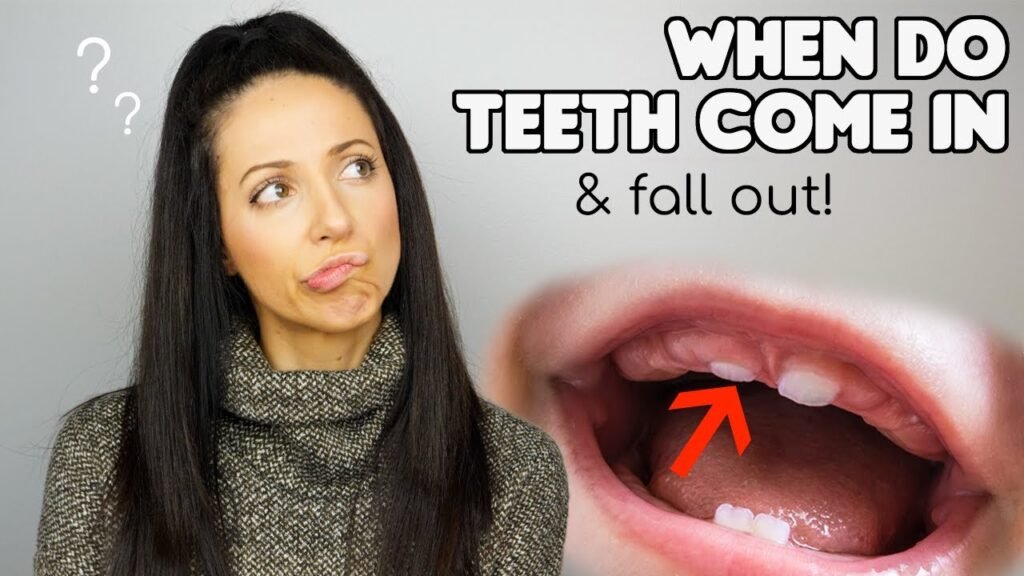A Guide to Healthy Teeth at Every Age

As we age, our teeth go through many changes that can affect our overall oral health. From the emergence of baby teeth in early childhood to the potential for tooth loss in later years, understanding the natural progression of our teeth by age is crucial for maintaining a healthy and beautiful smile. In this article, we will explore the various stages of dental development and offer tips on how to care for your teeth at every age.
How many teeth do you have by age?
By age 6, children typically have a mixture of baby and permanent teeth, with around 24 teeth in total. The remaining permanent teeth, including wisdom teeth, usually erupt between the ages of 17 and 21. This process of losing baby teeth and gaining permanent teeth is a natural part of childhood development.
Eruption charts can help track the normal sequence in which children's teeth typically come in. These charts can be a useful tool for parents and caregivers to understand the timing of tooth eruption and anticipate when to expect changes in their child's dental development. It's important to monitor the eruption of permanent teeth to ensure proper oral health and address any potential issues that may arise.
At what age do we have 24 teeth?
By the age of 6, children should have 24 teeth in their mouth. This is when the first set of permanent molars start to grow in, filling up the spaces in the back of their mouth. At this age, it is important to emphasize good oral hygiene habits to ensure the health of these new permanent teeth.
As children grow older, their dental development continues. By the age of 8, a child should have all 24 of their permanent teeth in place. This includes the first set of molars that grew in at age 6. It is essential to monitor their dental health at this stage to prevent any issues that may arise with their new teeth.
At 12 years old, the second set of permanent molars start to grow in behind the first molars. By the age of 14, a child should have 28 teeth in total, including these new second molars. It is crucial to continue practicing good oral hygiene and regular dental check-ups to maintain healthy teeth and gums throughout adolescence.
Do you receive teeth at the age of 30?
No, most people do not get new teeth at 30. By this age, the permanent set of teeth has already fully emerged, typically by the age of 21. It is important to take care of these adult teeth through regular dental check-ups and good oral hygiene practices to maintain their health and functionality for a lifetime.
From Childhood to Golden Years: Maintaining Healthy Teeth Throughout Life
From childhood to our golden years, maintaining healthy teeth is essential for overall health and well-being. Starting with proper oral hygiene habits at a young age sets the foundation for a lifetime of healthy smiles. Brushing twice a day, flossing daily, and regular visits to the dentist are key components in preventing tooth decay and gum disease. As we age, it's important to continue these habits and be proactive in addressing any dental issues that may arise.
As we transition into our adult years, our teeth may face new challenges such as wear and tear, discoloration, and potential tooth loss. By staying vigilant with our oral hygiene routine and seeking professional care when needed, we can preserve our natural teeth for as long as possible. Regular dental check-ups can help catch any issues early on and prevent them from progressing into more serious problems.
As we enter our golden years, maintaining healthy teeth becomes even more crucial. Aging can bring about changes in our oral health, such as dry mouth, gum disease, and increased risk of tooth decay. It's important to continue practicing good oral hygiene habits and to work closely with your dentist to address any age-related dental concerns. By prioritizing our oral health throughout all stages of life, we can enjoy a lifetime of healthy smiles.
Ageless Smiles: Tips for Keeping Your Teeth Strong and Bright
Having a bright and strong smile is a goal for many people, regardless of age. To achieve and maintain ageless smiles, there are a few key tips to keep in mind. First and foremost, regular dental check-ups and cleanings are essential for maintaining strong and healthy teeth. This not only helps to prevent cavities and gum disease, but also allows for early detection and treatment of any potential issues. Additionally, practicing good oral hygiene at home, such as brushing and flossing daily, can help to keep teeth strong and bright for years to come.
In addition to regular dental care, paying attention to diet and lifestyle choices can also contribute to ageless smiles. Eating a balanced diet that is rich in fruits and vegetables, and low in sugary and acidic foods, can help to protect teeth from decay and discoloration. Furthermore, avoiding habits such as smoking and excessive alcohol consumption can also help to maintain a bright and strong smile. By incorporating these tips into your daily routine, you can enjoy ageless smiles that radiate health and confidence.
In summary, maintaining good oral hygiene and regular dental check-ups are crucial for preserving the health and appearance of our teeth as we age. By being proactive in our dental care, we can ensure that our teeth remain strong and functional well into our later years. With proper care and attention, we can continue to enjoy a bright and healthy smile for many years to come.